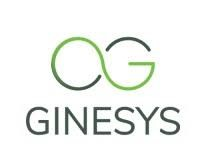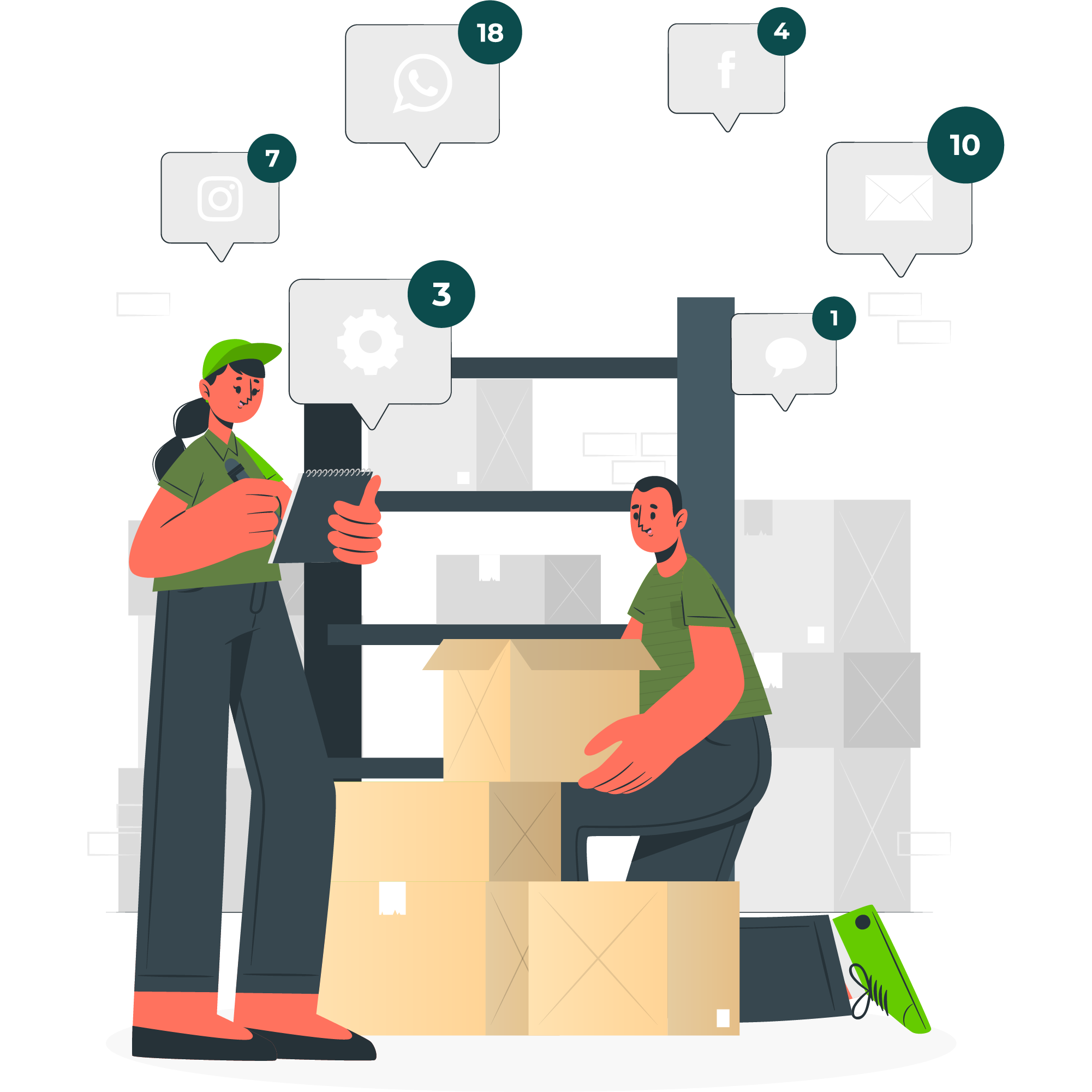Why Affordable ERP Solutions are a Game-Changer for Small Retailers
Running a small business today is no easy feat. With shifting customer expectations, fierce competition, and the increasing complexity of managing inventory, sales, and finances, retailers must find smarter ways to stay ahead. However, many small business owners still rely on outdated spreadsheets, manual processes, and disconnected software solutions to manage operations.
Enterprise Resource Planning (ERP) systems have long been the gold standard for simplifying retail operations, integrating key business functions into a single platform. But historically, ERP solutions have been associated with high costs, complex implementation, and extensive IT requirements—barriers that put them out of reach for smaller retailers.
Fortunately, modern advancements have made affordable, cloud-based ERP solutions available, levelling the playing field for businesses of all sizes. Today, small retailers can leverage ERP technology to automate workflows, gain real-time insights, and drive business growth—all without breaking the bank.
This blog delves into how small retailers can benefit from cost-effective ERP solutions and what to consider when choosing the right one.

Gain complete control over inventory, sales, and finances with Ginesys Retail ERP.
ERP is Not Just for Large Enterprises
For years, ERP systems were seen as the exclusive domain of large enterprises with deep pockets and dedicated IT teams. But that’s no longer the case. Thanks to significant advancements, small retailers can now access affordable, scalable, and easy-to-implement ERP solutions tailored to their needs.
The key factors driving ERP accessibility for small retailers are:
- Cloud-Based ERP: Cloud solutions eliminate the need for costly hardware and on-premises installations. Retailers can access their ERP system from anywhere, pay for what they use, and enjoy automatic updates without IT overhead.
- Subscription Pricing Models: Unlike traditional ERPs that required hefty upfront investments, many modern solutions offer flexible, pay-as-you-go pricing, allowing small businesses to spread costs over time.
- Modular ERP Options: Small retailers don’t need a full-fledged system all at once. They can start with essential modules—like inventory and sales—and expand as their business grows, making ERP adoption both practical and affordable.
Inventory Control: Reducing Wastage and Stockouts
Managing inventory is one of the biggest challenges for small retailers. Too much stock ties up capital, while too little can result in missed sales opportunities. Without proper oversight, retailers often struggle with overstock, stockouts, and inaccurate demand forecasting.
An ERP system offers features that take the guesswork out of inventory management by providing real-time stock tracking, automated replenishment, and insightful analytics.
- Smart Inventory Forecasting: ERPs use historical sales data and market trends to predict demand, helping retailers maintain the right stock levels.
- Automated Reordering: When stock levels hit a predefined threshold, the ERP can trigger reorder requests, ensuring retailers never run out of popular products.
- Multi-Location Visibility: Retailers operating across multiple stores or warehouses can track inventory movements effortlessly, reducing inefficiencies and shrinkage.

Scale your retail business seamlessly with Ginesys’ cloud ERP—flexible, modular, and built for growth.
Optimizing Sales and Billing Operations
Managing sales efficiently is one of the biggest challenges for small retailers, especially when handling multiple sales channels, invoicing, and payment tracking.
Traditional billing methods, manual record-keeping, and separate POS systems create inefficiencies that slow down business operations. An affordable ERP system integrates sales, billing, and reporting, ensuring smooth transactions and better financial oversight.
Faster and More Accurate Billing with Integrated POS
An ERP-integrated Point of Sale (POS) system allows retailers to automate invoicing, apply discounts, and process transactions quickly. This ensures customers experience quick and hassle-free purchases.
Automated Sales Tracking and Performance Insights
Retailers often struggle to track daily, weekly, and seasonal sales trends manually. With an ERP, automated reporting provides real-time sales insights, inventory movement, and revenue tracking—helping businesses make quick, data-backed decisions on promotions, restocking, and pricing strategies.
Multi-Channel Sales Management
For retailers selling through physical stores, e-commerce, and marketplaces, an ERP system synchronizes orders across platforms, ensuring consistent pricing, stock updates, and effortless order processing. This prevents overbooking, delays, or discrepancies that could frustrate customers.
Improved Customer Checkout Experience
A slow, outdated checkout process can lead to dissatisfied customers and abandoned sales. ERP-powered automated billing, flexible payment options, and digital invoicing accelerate transactions, ensuring a smoother, faster, and more efficient purchasing experience.

Cost Reduction Through Process Automation
For small retailers, inefficiencies lead to lost time and money. Managing stock manually, tracking expenses on spreadsheets, and processing orders without integration slow down operations and increase costly errors.
Affordable ERP solutions automate key retail processes, cutting expenses and allowing businesses to focus on growth.
Lowering Operational Costs Without Expanding Staff
Hiring more employees for inventory control, sales tracking, and accounting can strain budgets. ERP software automates order processing, invoicing, and stock updates, reducing reliance on manual oversight and lowering labour costs.
Preventing Financial Leakages with Integrated Accounting
Disorganized financial management often results in missed payments, delayed invoicing, and untracked expenses. ERP systems automate payment reconciliation, track vendor dues, and flag financial inconsistencies, providing clear cash flow visibility and minimizing revenue losses.
Optimizing Inventory and Reducing Wastage
Poor inventory management leads to overstocking, dead stock, or lost sales from understocking. ERP-driven demand forecasting helps retailers maintain optimal stock levels, while automated purchase orders ensure they only buy what’s needed, when it’s needed, minimizing excess costs.
Ensuring Compliance and Avoiding Penalties
Tax errors and regulatory non-compliance can result in hefty fines. ERP software automates tax calculations, tracks compliance, and ensures accurate reporting, reducing legal risks and ensuring smooth operations.
Enhancing Customer Relationship Management
Customer retention is as vital as acquiring new buyers, yet many small retailers lack structured data to build long-term relationships. Without a centralized system, tracking customer preferences and follow-ups becomes difficult.
Affordable ERP solutions integrate CRM features, allowing retailers to personalize engagement, increase loyalty, and drive repeat business.
Centralized Customer Data for Personalization
Scattered customer data across emails, spreadsheets, or receipts results in missed opportunities. ERP systems consolidate purchase history, preferences, and feedback, helping retailers create personalized marketing campaigns and improve service quality.
Targeted Promotions Based on Purchase Behaviour
Instead of mass marketing, retailers can use ERP-driven insights to offer personalized discounts, loyalty rewards, and timely follow-ups based on individual customer behaviour, increasing repeat sales and engagement.
Automated Customer Follow-Ups for Higher Retention
ERP automates post-purchase engagement, such as thank-you emails, restock alerts, and service reminders, ensuring consistent communication that strengthens customer relationships and improves retention rates.

Improve stock accuracy, reduce wastage, and boost sales with Ginesys’ intelligent inventory management.
Ginesys: Offering Cloud-based Affordable SaaS ERP Solutions for Small Retailers
Selecting the right ERP is a critical decision for small retailers, balancing affordability, ease of implementation, and industry relevance. Ginesys stands out with a retail-first SaaS ERP solution built specifically for the needs of growing businesses. Unlike generic ERP systems that are expensive and complex, Ginesys provides a modular retail ERP running on a cloud-powered platform that adapts as retail operations evolve.
Cloud ERP: Retail Management Without Heavy IT Costs
Traditional ERP systems often require expensive servers, IT maintenance, and on-premises infrastructure—costs that can burden small retailers. Ginesys' cloud-based ERP eliminates these overheads, providing secure, anywhere-accessible tools for managing inventory, sales, procurement, and accounting. This ensures seamless operations across retail stores, e-commerce, and B2B channels without requiring a large IT team.
Modular Pricing That Aligns with Business Growth
One of the biggest challenges for small retailers is paying for features they don’t need. Ginesys offers a flexible, pay-as-you-grow pricing model, allowing businesses to start with essential modules and add advanced functionalities like production, accounting, and business intelligence when needed. This ensures maximum ROI without upfront capital investment.
End-to-End Integration for Streamlined Retail Operations
Disconnected systems create data silos and operational inefficiencies. Ginesys ERP integrates seamlessly with:
- Ginesys POS (offline point-of-sales) and Zwing POS (web-based POS) for smooth transactions.
- Browntape eCommerce OMS to centralize online and offline order management.
- Smart warehouse management tools for efficient stock movement and order fulfilment.
- Retail-focused accounting automation to keep books updated with real-time financial reconciliation.
Common ERP Adoption Challenges for Small Retailers
While ERP adoption brings significant benefits, many small retailers hesitate due to perceived challenges. Concerns over cost, complexity, and transition difficulties often hold businesses back.
Modern, cost-effective ERP solutions have made adoption smoother and more accessible.
Myth: ERP is Too Expensive for Small Retailers
Many assume ERP is only for large enterprises with big budgets. Affordable, cloud-based solutions eliminate heavy upfront costs, offering subscription-based pricing models that allow small retailers to pay for what they need without financial strain.
Challenge: Transitioning from Manual to Digital
Shifting from spreadsheets, manual bookkeeping, or basic POS systems to ERP might seem daunting. User-friendly interfaces, guided onboarding, and customer support simplify the transition, ensuring teams can quickly adapt with minimal disruption.
Concern: ERP is Too Complex for Daily Retail Operations
Retailers often fear that ERP systems are overly technical. Modern ERP solutions are designed with intuitive dashboards, mobile accessibility, and automation, ensuring that even retailers with limited tech expertise can navigate and manage operations effortlessly.
Reality: ERP Adoption is a Competitive Necessity
Businesses that delay ERP adoption risk falling behind competitors who leverage automation, data insights, and efficiency to drive growth. By choosing scalable and tailored ERP solutions, small retailers can gain control over operations, improve decision-making, and set the foundation for long-term success.
Achieve Big Benefits with ERP
Small retailers who embrace ERP solutions today position themselves for sustainable growth and resilience in a competitive market.
Adapting to Changing Consumer Expectations
Today’s consumers expect fast service, real-time stock availability, and personalized shopping experiences. ERP solutions help retailers manage demand, automate order fulfilment, and integrate online and offline sales channels to meet modern expectations.
Preparing for Business Expansion
A business operating on disconnected systems and manual processes will struggle with scalability. ERP centralizes inventory, finances, and customer data, ensuring that as businesses expand, they can add new locations, suppliers, or online platforms without operational chaos.
Leveraging AI and Analytics for Smarter Decisions
ERP solutions for the future are incorporating AI-driven analytics, automated insights, and predictive forecasting. Small retailers who invest in ERP today will stay ahead of trends in a dynamic, digital-first economy.
Securing Business Stability Amid Market Uncertainty
From supply chain disruptions to economic shifts, retail businesses must be agile and prepared. ERP solutions provide real-time insights, automated workflows, and financial clarity, ensuring retailers can navigate uncertainties with confidence.

Say goodbye to manual processes—integrate online and offline sales with Ginesys’ all-in-one retail ERP.
Affordable ERP solutions have emerged as transformative tools for small retailers to make big leaps in their business trajectory. By investing in the right ERP system, small retailers can overcome traditional operational challenges and position themselves for long-term growth. Grow your retail business with Ginesys’ ERP solutions. Book a demo today.

